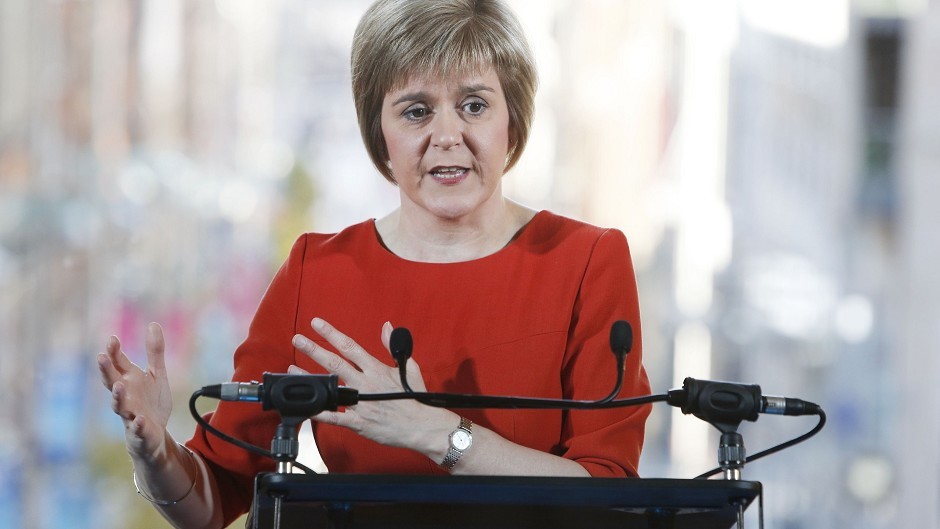Nicola Sturgeon has been elected unopposed as the SNP’s new leader and the country’s First Minister-in-waiting
Party members had until 9am this morning to submit their nominations for the person who will lead the party when Alex Salmond officially steps down next month.
Ms Sturgeon, currently Deputy First Minister and deputy leader of the SNP, is understood to be the only candidate and there are no signs that she will face any last minute opposition.
Her leadership will not be officially confirmed until the SNP conference in November, and her election as First Minister must be approved by the Scottish Parliament with the assent of the Queen.
But these will be seen as formalities if Ms Sturgeon emerges unopposed today to succeed Mr Salmond, Scotland’s longest serving First Minister who led the SNP for a total of 20 years and took its decades long dream of Scottish independence to its highest watermark.
Ms Sturgeon has pledged to engage constructively with the Smith Commission on Scottish devolution, but said her ambition for independence remains undiminished following the rejection by 55% of voters on September 18.
The race to become the SNP’s next deputy leader remains wide open, with Scottish Government Cabinet secretary Angela Constance, minister Keith Brown and Westminster treasury spokesman Stewart Hosie expected to be confirmed as candidates this morning.
Mr Brown claims the support of over half of Holyrood’s SNP MSPs, including a clutch of Government ministers, as well as a number of councillors and senior grassroots organisers.
But Ms Constance has made a direct appeal to the tens of thousands of new members who joined the SNP in the wake of the referendum, swelling its ranks from around 25,000 to over 80,000.
Many of these independence die-hards will have attained voting rights before the cut-off point of September 23, and will have equal representation under the SNP’s one-member-one-vote system.
Mr Hosie aims to secure the maximum number of SNP MPs at the next general election, which he says should not be seen as a re-run of the referendum but an opportunity to hold the Westminster’s “feet to the fire” over unionist devolution pledges.
